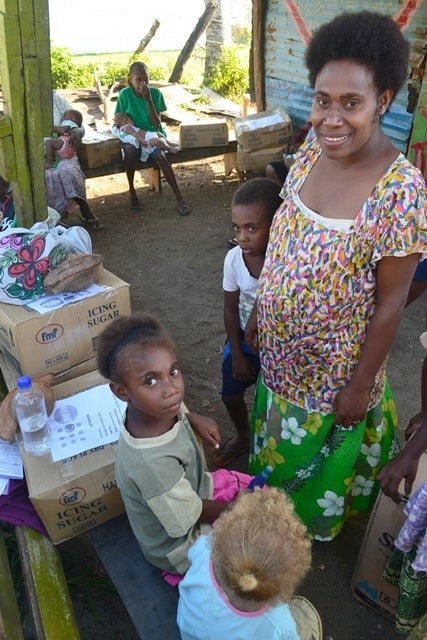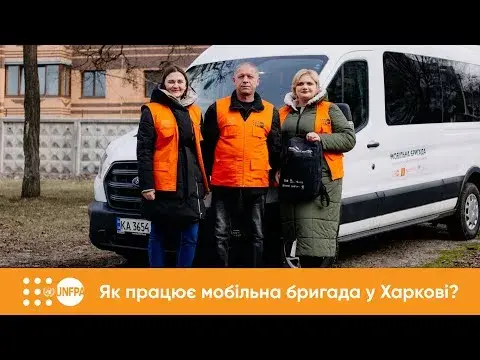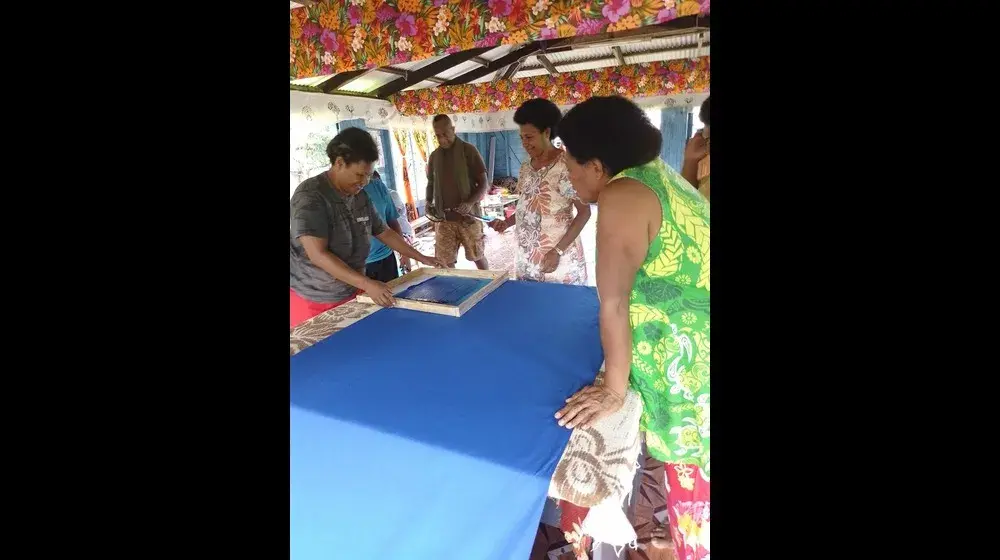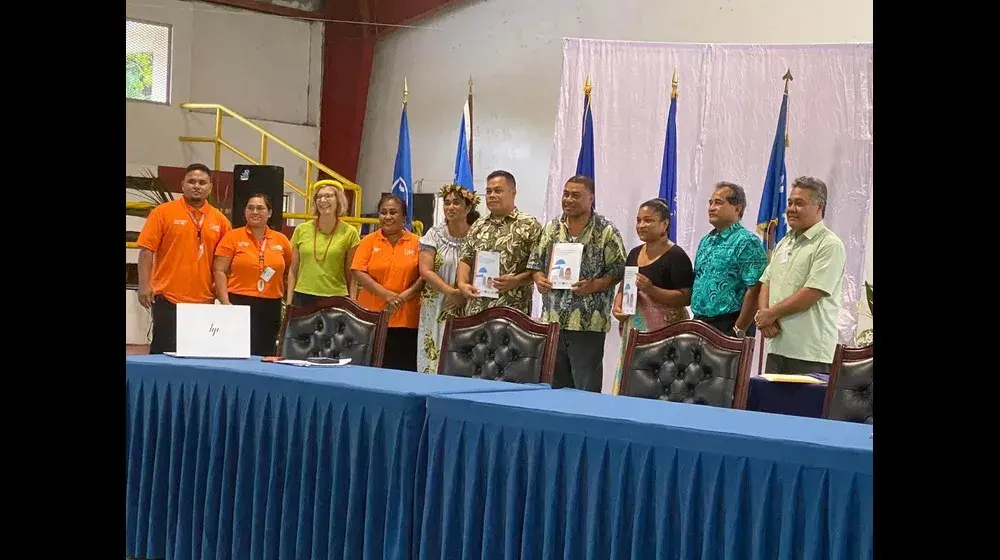UNFPA Pacific, Port Vila, Vanuatu (March 28, 2015) - Asked how she felt about receiving a basic dignity kit at her Cyclone Pam-ravaged township within the Vanuatu capital of Port Vila, Gertrude Venabelt said without hesitation: I feel loved.
The language barrier means one seldom gets perfect English phrases on the outskirts or from ni-Vanuatu who speaks the provincial dialect or the common Bislama language. Ms Venabelt follows up with: "Me glad me get this one carton".
Ms Venabelt was referring to the dignity kit she had just received from the visiting integrated team of health and gender and protection workers, led by the Vanuatu Ministry of Health and supported by the United Nations Population Fund (UNFPA).
Betty Iman, 34, is pregnant with her third child and came to take advantage of the ante-natal care that was part of the services from the team that day at Fresh Wind Ohlem, where 46 of the 400 prepositioned dignity kit were being distributed.
The outreach team was expecting 40 pregnant women and lactating mothers but more than 100 women and their children came to the aid post.
"This area has not received power since the cyclone and so the torch in the dignity kits will be very useful for us; the other materials inside the kits can save us money too, thank you," Ms Iman said.
Dignity kits distributed in Vanuatu include sanitary pads, underwear, a tee-shirt, comb, washing powder, toothpaste, tooth brush, bath soap, a towel, comb and a zip-lock bag.
Dignity kits with hygiene supplies are prepared for women in humanitarian situations, the impact of which is experienced differently by women and girls though their needs are not usually prioritized in national responses.
"We were expecting 40 but the number of women who turned up today with their children just emphasized the great need for outreach like we did with our partners," UNFPA Gender Adviser Maha Muna said.
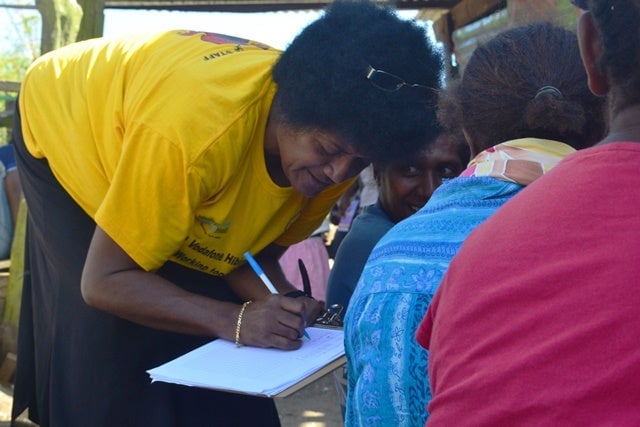
Reproductive health kits which were airfreighted in on March 28 will replenish the stock at damaged hospitals and health centers to ensure emergency obstetric care, ante-natal and post-natal care, as well as post-rape care is available through the health system.
A 2012 study on the prevalence of violence against in Vanuatu reported 60 per cent intimidate partner violence and 48 per cent non-partner violence. Gender-based violence (GBV) can be exacerbated in emergency evacuation centers and host-family accommodation.
Anna Naual has two sons, a five-year-old and five-month-old, whose father abandoned them recently. The single parent who works in a hotel in the city recounted losing the bulk of their possession to flooding; the roof of her house was also blown off.
"I am breastfeeding at the moment, yes. We lost everything, all the clothes gone. This team is good because my boys get seen and treated and very helpful to get something like this," she said referring to the dignity kit she'd just received.
Women blocked the road at the settlement to secure a place in the queue to be seen by the health professionals in the outreach team. Women shielded themselves from the scorching sun, with children in tow or wrapped-up infants in their arms, almost overwhelming the skeletal team which was expecting only 40 pregnant and or lactating mothers.
"Today was a good day," Apisai Tokon, head of the Reproductive Health and Family Planning Unit of the Department of Public Health said.
"The dignity kits are very appropriate and relevant as mothers need these basic things at this time, much appreciation to UNFPA for these kits. We were able to work from the aid post and saw a lot of women and children who were given supplements, multi-vitamins and deworming tablets."
Ms Tokon said 100 dignity packs has been given to the Vanuatu Women Counselling Centre (VWCC).
The UNFPA and Ministry of Health staff were complemented by Margaret Soul, a midwife and nurse from the Neil Dom Ministry Clinic, two Vanuatu VWC volunteers and community health workers.
"The people of Vanuatu are proving once again how resilient they are after Cyclone Pam practically destroyed 5 of the 6 island provinces in the archipelago," Maha Muna, UNFPA Pacific Gender Adviser said.
"UNFPA reached out to partner community-based organizations and helped them to mobilize an emergency response plan for their communities. This includes maternal health outreach, adolescent reproductive health programming and GBV prevention and response initiatives."
Research officer at the Vanuatu Leikita Abel said discussions centered on the impact of the cyclone and recovery approaches.
"It was good to come with the Ministry of Health and UNFPA so women had discussions with us before they went on to health checks - if we were to work together like this more we would get more information while the people received more services," Ms Abel said.
Activities the UNFPA has been involved in for the Cyclone Pam response include:
The production of a Flash Appeal to raise almost $30m for emergency relief and mobilization of a United Nations (UN) emergency relief funding (CERF) of $225,000 for reproductive health and protection programmes, reflected in the Flash Appeal;
Reconnected with community-based organizations to develop outreach programmes of reproductive health services and protection messages to women and youth, and working with vibrant women's machinery to ensure that the humanitarian relief remains responsive to women and girls;
Organized a campaign to distribute Dignity Kits to pregnant and lactating women, as well as women who access Vanuatu Women's Counseling Center crisis services; and
Advocating for the reopening of markets for women to enable them to sell garden crops and earn money for children to return to school, buy household supplies and pay for healthcare.
